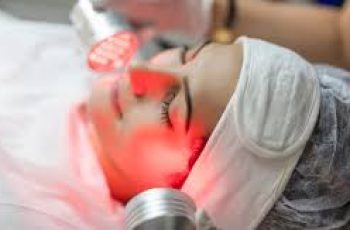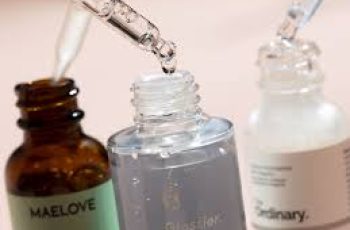Hydroquinone in Skin Care Products
Hydroquinone is a tyrosinase inhibitor used to inhibit melanin production and produce skin lightening and whitening.
Hydroquinone is found in skin care products for hyperpigmentation.
Hydroquinone creams and other hydroquinone products require a prescription.
Is hydroquinone safe? In this blog, I’ll review hydroquinone and give you my perspective as a dermatologist.
Hydroquinone
What Is Hydroquinone Used For?
Hydroquinone is the strongest skin whitening ingredient sold in the United States. It is used to treat melasma, dark spots on the skin, hyperpigmentation, post inflammatory hyperpigmentation and any other dyschromias that are caused by an excess of melanin.
Is Hydroquinone Safe? What are the Dangers of Hydroquinone?
Hydroquinone was banned in Europe in 2000. In Asia, its use is highly regulated. Hydroquinone (HQ) was used in over the counter skin care and cosmetic products at a concentration of 2% or less without a prescription until the U.S. CARES Act was passed in 2020. Subtitle F of this act changed the way hydroquinone was regulated and hydroquinone is now considered a drug and requires a prescription.
Hydroquinone has been used for many years by dermatologists to treat pigmentation disorders, with few reports of serious side effects. The reason people worry about the danger of hydroquinone is because it is a metabolite of cancer-causing benzene. However, this does not mean that hydroquinone causes cancer.
Some studies have shown that large doses of hydroquinone taken by mouth (not topical use) resulted in some evidence of cancer in rats. However, Hydroquinone is detoxified in the liver in humans, and metabolized very differently than in rats.5,6 In humans, HQ is probably metabolized to detoxified derivatives, such as glucuronide and sulfate conjugates of HQ.7
In the 40 years HQ has been on the market for the treatment of skin hyperpigmentation and no human cases of cancer have been attributed to its use.
Ochronosis
The main danger of hydroquinone is a condition called exogenous ochronosis.8 Ochronosis is blue-black spots on the skin that occur in the area of HQ application. This occurs after prolonged use of HQ and is more common in Asians and darker skin types.9 For this reason, the FDA decided that HQ should be used under a doctor’s supervision.
Topical HQ products are thought to cause exogenous ochronosis by inhibiting the enzyme homogentisic acid oxidase in the skin. This results in the local accumulation of homogentisic acid that then polymerizes to form ochronotic pigment.10 Despite the widespread use of HQ, only 30 cases of ochronosis have been attributed to its use in North America.6
Side Effects From Hydroquinone
It is not uncommon for hydroquinone to case an allergic skin rash. Nail discoloration may also occur.
The incidence of side effects from HQ may also be decreased through the use of lower strengths of HQ, using a test site first to determine the presence of allergy, and taking “hydroquinone holidays” every 3-4 months.
Read more about skin care routines to treat hyperpigmentation and hydroquinone holidays.
Where To Buy Hydroquinone?
You have to buy these from a pharmacy or your doctor.
Prescription drugs may contain hydroquinone (4%), and custom pharmacy formulations include hydroquinone (2% to ≥10%) as an ingredient.
What products contain hydroquinone?
The best hydroquinone creams are listed below. They require a prescription. Hydroquinone is only available by prescription – there are no OTC hydroquinone creams.
In some cases your doctor will have a compounding pharmacy make a custom hydroquinone cream for you. Hydroquinone can be generic or is available in these prescription brands:
Alphaquin
Claripel
Clarite
Eldopaque,
Eldoquin
Epiquin Micro
Esoterica
Lustra
Lustra-AF
Lustra-Ultra
Melanex
Melpaque,
Melquin HP 4%,
Melquin,
Melquin-3 Topical Solution
Nuquin HP Cream
Nuquin HP Gel
Solaquin
Tri-Luma
Find a doctor near you to prescribe hydroquinone or a skin lighting routine.
How Does Hydroquinone Work to Lighten Skin?
Hydroquinone is a type of skin lightener found in skin care products known as a tyrosinase inhibitor.
Hydroquinone lightens skin several ways:
Inhibits tyrosinase by decreasing its activity by 90%.3
Cytotoxic to melanocytes.2
Causes reversible inhibition of cellular metabolism by affecting both DNA and RNA synthesis.
How Is Hydroquinone Used To Lighten Dark Spots On The Skin?
Hydroquinone may be used alone, however it is often combined with skin lightening ingredients such as tretinoin, glycolic acid, kojic acid, azelaic acid, and corticosteroids.4
How Long Does it Take Hydroquinone to Work?
As with all tyrosinase inhibitors, it often takes 6 – 12 weeks before any improvement becomes noticeable.
Is Hydroquinone a natural ingredient? Where Does Hydroquinone come from?
HQ occurs naturally as an ingredient in various plant-derived food and beverage products, such as vegetables, fruits, grains, coffee, tea, beer, and wine.1
But there are no natural hydroquinone creams. You can find a list of skin lightening ingredients at this link. Some are natural, but hydroquinone is not considered a natural or clean ingredient.
16 Bauman Skin Types
To find the best skin care products for your skin type, you first need to know what your Baumann Skin Type is.
You can take the quiz and find out now!
DQH Knowledge drop: In your 20s, your skin cell turnover decreases. (Cell turnover is a key component in keeping your skin youthful.) You know what else slows down? Your collagen production. Starting in your 20s, collagen decreases by about 1 percent per year. Should you want to prevent fine lines and wrinkles, start by eliminating behaviors that contribute to premature aging. “If it’s bad for you, it’s bad for your skin,” says dermatologist Michel Somenek.
“Cigarette smoking reduces blood flow to the skin and causes premature wrinkling and a dull skin texture. Making the repeated pursed motion to inhale can also cause smoker’s lines. Alcohol and recreational drugs are toxins for the skin that damage its cellular structure and DNA,” Somenek tells us. “The faster you eliminate vices while you are young, the better chance your skin and body have to recuperate.” Also, adopting an anti-aging routine in your 20s is key. After all, the best offense is a good defense. We spoke to Somenek and experts Joshua Ross and Audrey Kunin to find out more.
Keep reading for the best anti-aging products for your 20s, according to skincare professionals.
Sunscreen
“We all know that the sun is the number one cause of skin aging and starting the prevention in your 20s is very important,” Ross says. “The majority of your sun damage won’t start to appear until you’re in your 30s, so don’t wait until you see it surface or you’ll be behind the curve. Stay ahead of it with a good-quality zinc-based sunscreen worn daily.”
Farmacy Green Defense Daily Mineral Sunscreen
An invisible sunscreen with SPF 30, plus botanical extracts meant to protect skin with tons of antioxidants. Bonus: It’s clean and fine to use under makeup.
Bareminerals Complexion Rescue™ Tinted Moisturizer Broad Spectrum SPF 30
Although we recommend you use your SPF and moisturizer separately, we also understand moments when you don’t have time or energy for that extra step. For those times, this bareMinerals moisturizer is a great thing to have on hand.
Vitamin C Serum
“A great introduction to anti-aging is to start with a vitamin C serum in your morning skincare routine,” Ross says. “It’s a powerful antioxidant that will neutralize free radicals and brighten the skin.” He adds that it’s a great way to counteract the effects of the sun’s harmful rays, which, as previously mentioned, are among the biggest causes of premature aging.
Drunk Elephant C-Firma™ Vitamin C Day Serum
The Drunk Elephant C-Firma is a lightweight serum that promises to give skin a glow by combining the brightening powers of vitamin C with ferulic acid, l-ascorbic acid, and vitamin E. The included sodium hyaluronate is meant to replace hydration loss, so you shouldn’t have to deal with any irritation.
Sunday Riley C.E.O. Rapid Flash Brightening Serum
This potent serum is jam-packed with vitamin C (15 percent, to be exact), which means it’s a potential superstar at both brightening skin and dousing it in antioxidants.
Peptides
Using peptides on your skin has many benefits, says Somenek. “The skin barrier is what defends the body against pollution, UV rays, bacteria, and toxins. It can be damaged by several everyday factors. Using topical peptides aids in building a stronger barrier,” he says. “Peptides comprise elastic fibers, which are a type of protein. These fibers help to make skin appear taut and firm. Peptides can also help repair damaged skin, relieve inflammation, and even out skin tone. Some peptides can kill acne-causing bacteria that is common in 20-somethings.”
Kunin agrees, saying, “Peptides are an excellent entry point for supporting collagen.” She recommends looking for face and eye treatments that contain these collagen-boosting powerhouses.
Charlotte Tilbury Magic Eye Rescue Cream
This Charlotte Tilbury super-emollient eye cream has a base of coconut oil and shea butter (read: it’s incredibly hydrating). Botanicals plus peptides are meant to help reduce dark circles and boost collagen, respectively.
This creamy moisturizer serves up potent collagen-boosting peptides and pycnogenol, and antioxidant-rich vitamin C. “Instead of sitting on top of the skin, peptides penetrate the outer layer so they go deep. The ‘signals’ they send tell the cells to produce elastin and collagen, which are needed for youthful-looking skin,” explains Somenek.
At-Home Peel Pads
Remember that skin cell turnover fiasco we talked about earlier? One way to help support it is by exfoliating. “Exfoliation is important to help keep skin fresh and luminous,” Kunin says. She recommends using at-home peel pads as an easy and effective way to exfoliate.
“The goal in your 20s is to fight the slowing pace of cell turnover. It is wise to use products that gently exfoliate, yet still remove oil and other impurities. Products that have Alpha Hydroxy Acids (AHA) or Beta Hydroxy Acids (BHA) are a good choice.”
According to Somenek, you should only exfoliate two to three times a week. “People of all ages are guilty of over-exfoliating and that can be too much of a good thing,” he says.
Dermadoctor Kakadu C Intensive Vitamin C Peel Pad
A few swipes of this Derma Doctor powerful peel pad promise to leave your skin glowing and smooth, thanks to the seven (yes, seven) types of chemical exfoliants, including AHA and BHA. It also contains vitamin C via Kakadu plum extract for added brightening and antioxidant protection.
KEY INGREDIENTS Kakadu plum extract is sourced from the Kakadu plum, a fruit grown in northern Australia. It contains vitamin C, which restores the skin’s natural barrier, increases collagen production, and soothes irritation.
Dr. Dennis Gross Skincare Alpha Beta® Universal Daily Peel Pads
These are the gold standard of peel pads, with a cult following and over 900 five-star reviews on Sephora. They’re easy to use and contain a blend of anti-aging exfoliating acids.
Emollient Night Cream
“In your 20s, you need to start upping the hydration in your skincare routine. You may have been cautious of over-moisturizing because of acne in your teens, but as you enter your 20s, your skin transitions and becomes drier,” Ross says. “I recommend an emollient night cream added into your evening skincare regimen.”
“Twenty-somethings need to make sure that they are not using creams that will clog their pores and cause excess oil production,” says Somenek. Opt for non-comedogenic products.
Cerave Skin Renewing Night Cream
One great choice is the CeraVe Skin Renewing Night Cream, which is a non-comedogenic night cream that leaves skin soft and glowy. It combines the moisturizing powers of ceramides and hyaluronic acid.
RoC Retinol Correxion Max Hydration Creme
“The best night cream ingredients contain retinol, benzoyl peroxide, and/or salicylic acid or hyaluronic acid. The goal is to moisturize, yet remove excess oil,” says Somenek. This Roc Retinol Correxion cream fits the bill as it contains both hyaluronic acid and retinol so it promises to moisturize while also being non-comedogenic.



